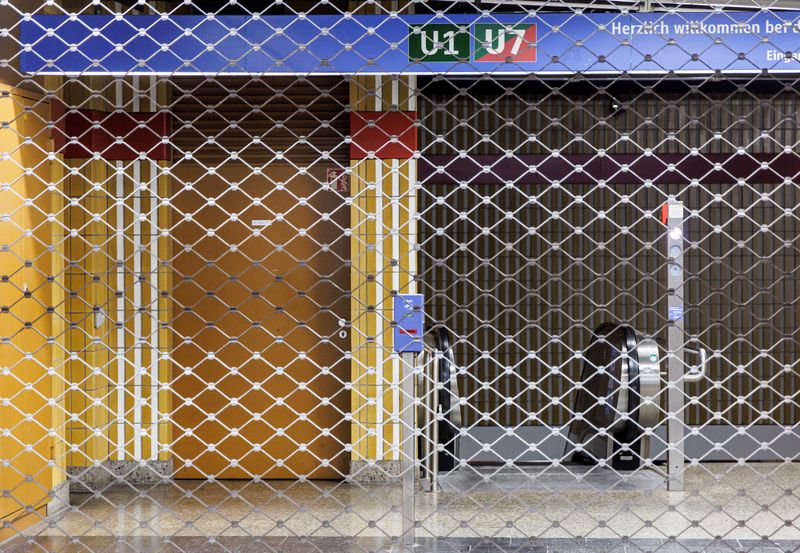BERLIN (Reuters) - Germany was set to raise its minimum wage by 3.4% to 12.41 euros ($13.53) an hour from 2024, based on the proposals of government-appointed commission on Monday, although unions and analysts said the hike would not be enough to cover inflation.
Labour Minister Hubertus Heil said he would accept the proposals - which were also for a further 3.3% rise to 12.82 euros an hour from January 2025 - though "I can understand that some wished for more".
His approval means the changes will most likely go ahead, raising the wages of almost 6 million people.
Increasing the minimum wage, which increased to 12 euros per hour in October from 10.45 euros, was one of the key election promises of Chancellor Olaf Scholz and his Social Democrats.
The country has the second-highest minimum wage in the European Union behind Luxemburg, which mandates a monthly minimum of 2,387 euros. Under the changes, the euro zone's largest economy would see workers earn at least 2,054 euros a month from 2024.
Only four other EU countries have a national minimum wage above 1,500 euros per month - Belgium, the Netherlands, Ireland and France, Eurostat data showed.
Stubbornly high inflation and interest rate hikes by the European Central Bank have been significantly dampening people's purchasing power in Europe's biggest economy. The business mood has also been declining.
Carsten Brzeski, global head of macro at ING, said the sharp rise in inflation was hitting lower incomes particularly hard so another hike in the minimum wage was justified, but the rise proposed this time was too small.
"The increase now proposed is very moderate and is too little to make up for the increased cost of living," he said.
Joerg Kraemer, chief economist at Commerzbank (ETR:CBKG), said the proposal was s moderate compared with the 15% increase in October last year, which made labour costs rise sharply in the lower salary ranges.
"Companies will try to pass that on to their customers, which should help keep underlying inflation high for the time being," Kraemer said.
Holger Schmieding, chief economist at Berenberg, said people on the minimum wage would be disappointed by the recommendations.
Their pressure on inflation should also be less pronounced than with the previous increase, he added. "The worst of the inflation of the mininum wage is behind us."
COMMISSION DIVIDED
It was the first time the Minimum Wage Commission - a body made up of employers and trade union representatives - had made its proposal by a majority vote not unanimous consensus.
"The positions were very far apart," commission chair Christiane Schoenefeld said.
Employers groups said businesses were already facing difficult conditions. The recommendations had a sense of proportion, the BGA wholesale and foreign trade association said. "We must not forget that we are currently facing an economic recession."
Stefan Koerzell of the German Trade Union Confederation said the minimum wage should have gone up to at least 13.50 euros an hour - and the recommendations amounted to two years of real wage losses when inflation was taken into account.
Germany will have to implement the EU minimum wage directive by the end of 2024 at the latest - setting minimum wages at 60% of the average for full-time employees at least, or more than 14 euros an hour in Germany.

(This story has been refiled to fix garble in the headline)
($1 = 0.9173 euros)